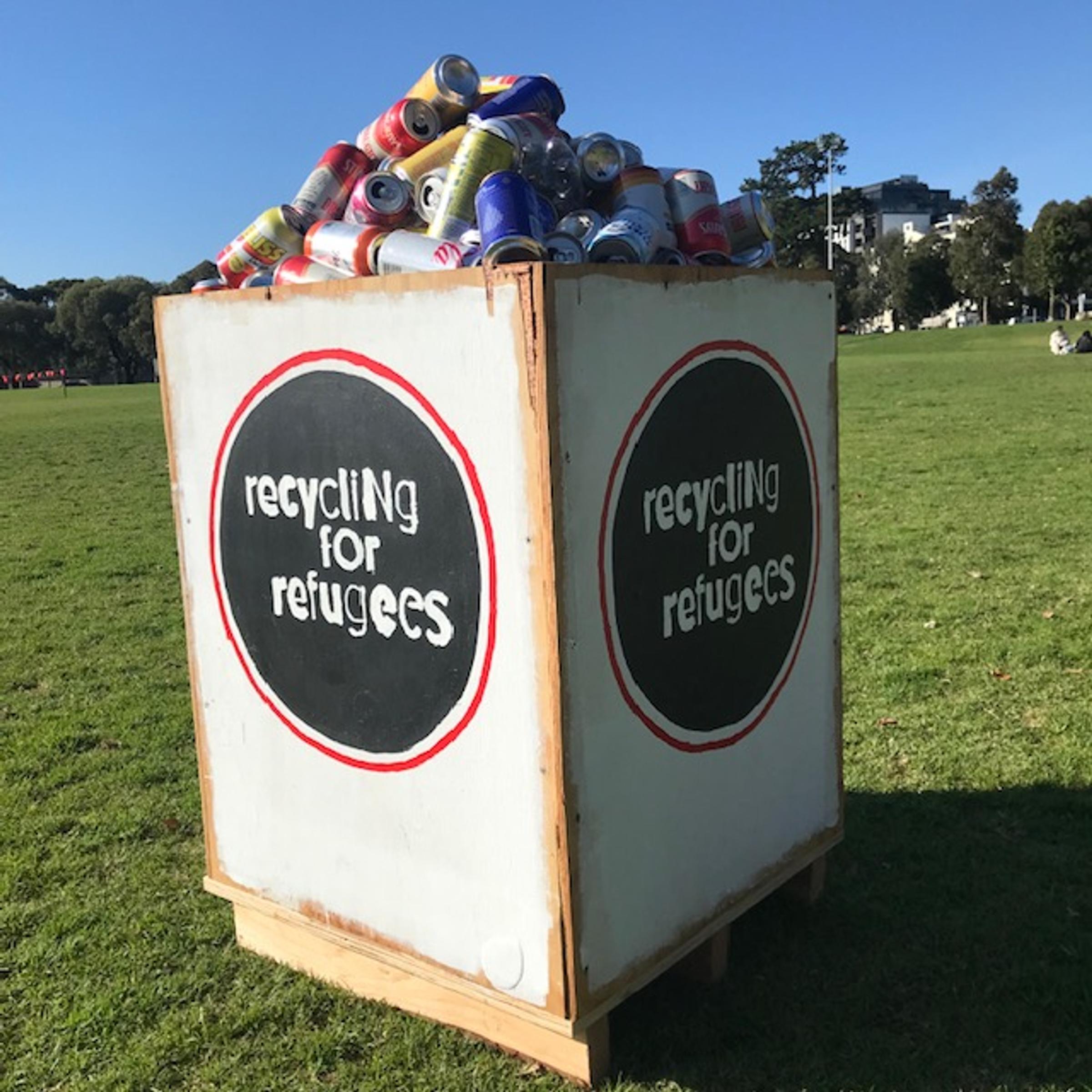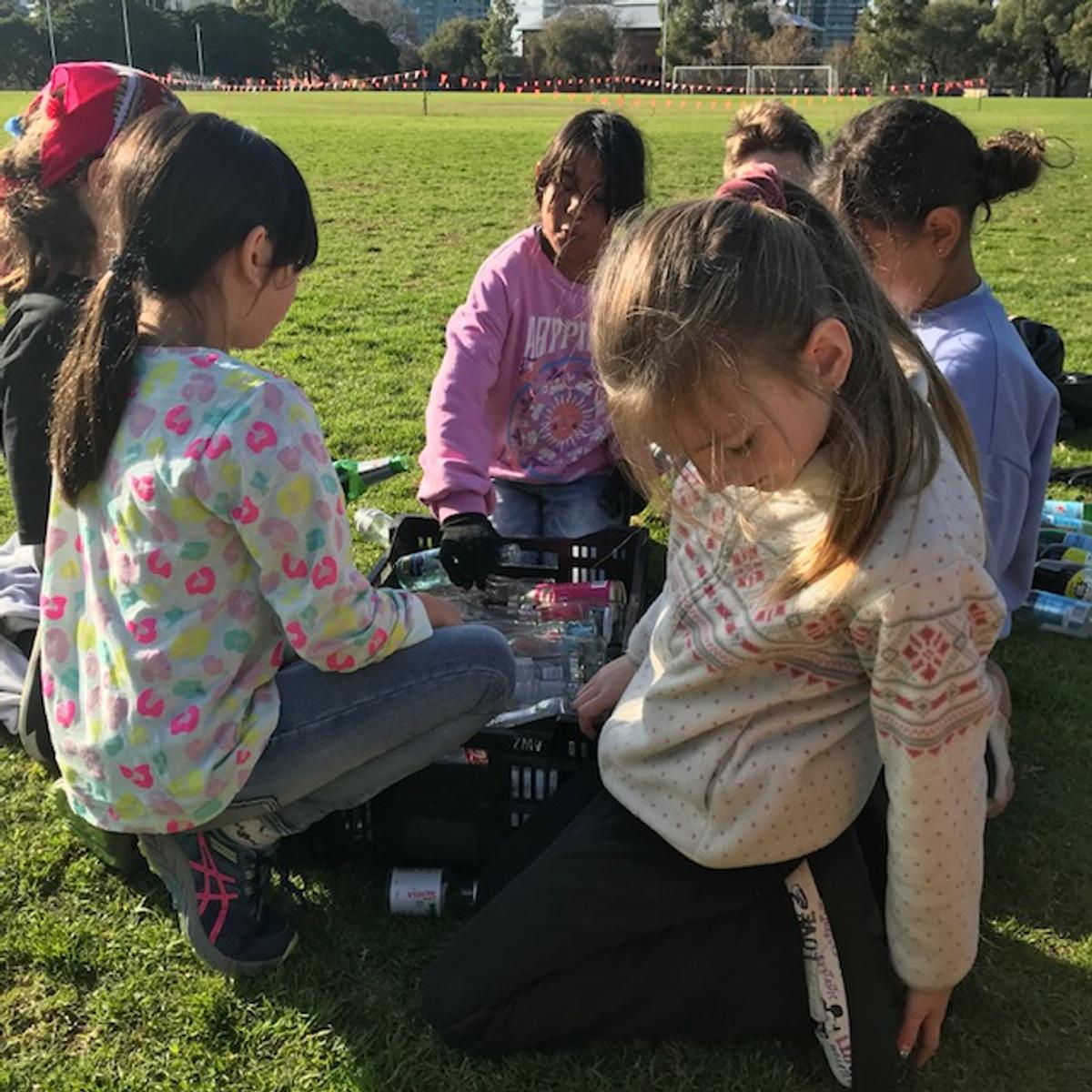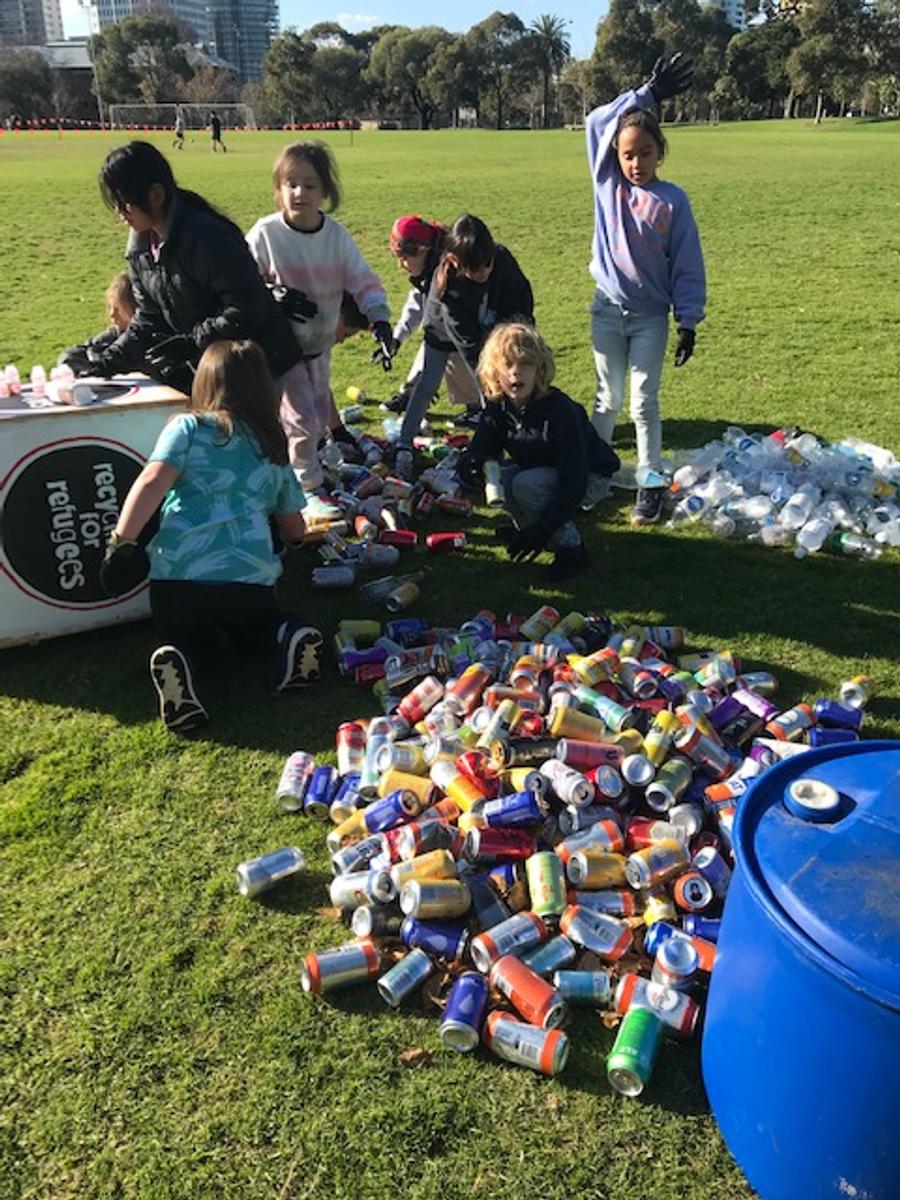Recycling for Refugees

Under blue skies we tipped out the tubs last Wednesday and started counting. I had ten pairs of gloves, and so ten children joined in – Jo Jo, Isabella, Ayla, Otis, Loretta, Asia, Ada, Aggie and Zhara (and one whose name I forgot to write down!) – and they made short work of the task.
“Are you doing this every Wednesday,” asks one. (The answer: yes).
“Wow, there are a lot of cans,” says another.
I ask the students to decide how to do this, and they opt to sort them into materials first: aluminium, glass, plastic, paperboard Up’n’Go boxes.
We each guess how many cans we had gathered in a pile – glistening like Christmas baubles in the winter sun – and devise ways and methods to count them. After a few false starts, each requiring a recount, we settle on adding them in multiples of two, singing out our own times table, until we reach 399.
“Can we make it four hundred, pleeeease,” says one.
The glass is stacked in a crate and counted one-at-a-time, until we reach 63, and for the plastics I suggest we create groups of ten, and then do the maths. We do, and it adds up to 112.
The end of lunch play bell goes and the children run back to their classrooms to ask their teachers if they can return to work out the final total with me. They all come back with smiles, and we do the sums. Nine plus four plus three plus two, equals? Carry the one… One plus nine plus one plus six plus one…
The grand total? 588 ten-cent deposit scheme containers (up from 542 on the previous count – great work SKiPPS!)
With pen and paper, I help them calculate how much this will donate to the refugee family we are helping to settle in Melbourne. I write down the maths. 10 cans = $1. 100 cans = $10. So how many does 500 cans equal? What about 88 cans?
Asia gets there first - $58.80 – but it is not a race. It is the doing that matters, the trying, the helping, and the being part of a group.
I say I’ll be back next Wednesday, and Zahra’s response is perfect: “Count us in!”
Dugald


